Do you want to be an electrician? It’s a great career choice with plenty of opportunity for growth. In this article, we will answer some of the most common questions about electrician career paths. We’ll provide tips on how to become an electrician, what to expect in the job market, and how to advance your career. Whether you’re just starting out or you’re considering a change in careers, this article has everything you need to know!
What are the General Responsibilities of an Electrician
To start off the article, let’s first answer the question: what does an electrician do? According to the U.S. Department of Labor, Bureau of Labor Statistics, “electricians install, maintain, and repair electrical power, communications, lighting, and control systems in homes, businesses, and factories.” Let’s take a look at their responsibilities in more detail.
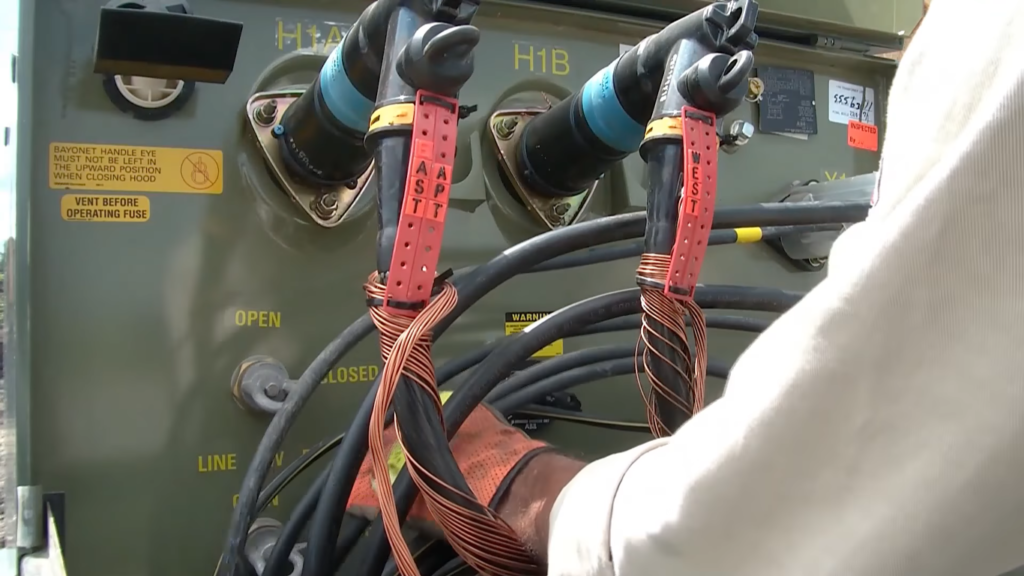
Installing and repairing electrical equipment and systems
Installing electrical systems in new construction is one of the main responsibilities of an electrician. This involves working with blueprints and following local building codes to ensure that the electrical work is up to code and meets the needs of the home or business owner. Electricians will also install wiring in existing buildings that are being renovated or repaired.
In addition to installing electrical equipment and systems, electricians are also responsible for repairing them when they break down. This may involve troubleshooting the problem to determine what is causing the issue and then making the necessary repairs.
Testing electrical equipment and systems
Testing is another important responsibility of electricians. They use a variety of tools and equipment to test electrical systems and components to make sure they are working properly. Electricians may also use test equipment to diagnose problems with electrical systems and determine the best way to fix them.
Electricians use a variety of tools to test the functionality of circuits, including multimeters, which measure electrical current, voltage, and resistance.
Performing electrical maintenance
As you may know by now a big part of an electrician’s job is to perform preventive maintenance. This means that they inspect systems and equipment regularly to identify potential hazards and make repairs before problems occur.
Inspecting electrical systems and equipment
Another part of an electrician’s job is to inspect electrical systems and equipment to make sure they are functioning properly and up to code. They will look for any damaged or worn wires, breakers, or other components, and fix or replace them as needed. [1], [2], [3]
What Do I Need to Become an Electrician?
Now that we’ve answered the question, “what does an electrician do,” let’s take a look at what you need to become one. Both your personal skills and certifications play a role in whether or not electrician is a job for you. Let’s discuss everything that can qualify you for a career in this field.
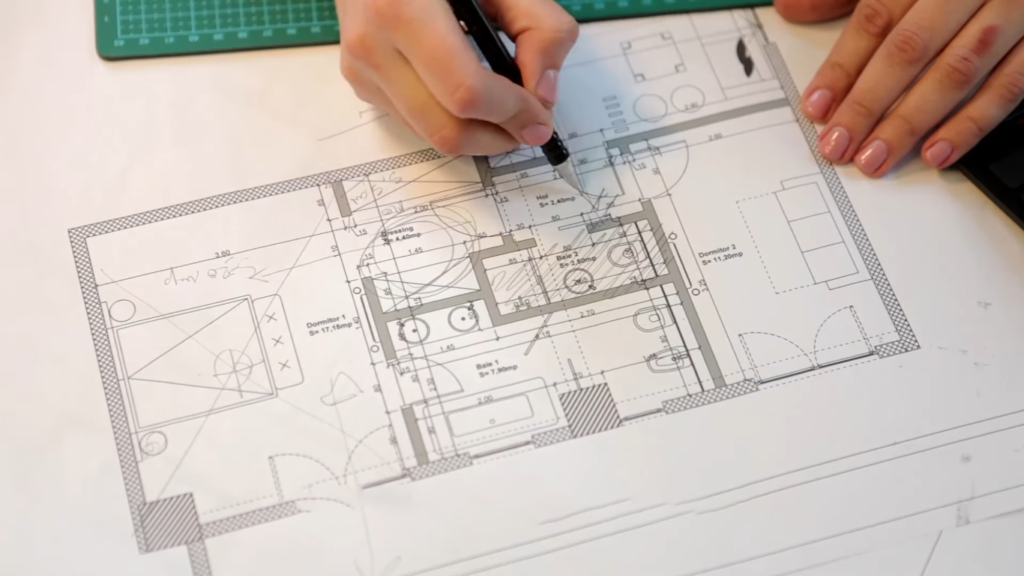
Be 18 years old or older
The first thing you’ll need to become an electrician is to meet the age requirements. In most states, the minimum age to apply for an electrician license is 18 years old. Some states require that you be 21 years old. Electricians perform a dangerous job, so states want to make sure that you have the maturity to handle the responsibility.
A high school diploma
Luckily, you won’t need a four-year degree to join the ranks of electricians. In fact, most electricians complete a technical training program after high school and become certified journeyman electricians.
While some electricians may be able to get by without a formal education, most employers prefer to hire those who have at least completed high school. If you’re not sure whether you meet this requirement, check with your local licensing board. They can tell you what qualifications are necessary in your state.
However, if you’re looking for an advantage in the job market, consider taking some college courses related to electricity or earn an Associate’s Degree in Applied Science – Electricity.
Basic algebra skills
As an electrician, you’ll be using math every day on the job. You’ll need to be able to calculate voltage, amperage, and resistance. These calculations are essential for ensuring that electrical circuits are installed correctly and safely. You don’t need to know how to perform calculus, but you should be confident in your ability to do basic algebra.
Physical strength and stamina
You’ll need to be in good physical condition to become an electrician. The job requires a lot of manual labor, including lifting heavy objects and climbing ladders. You’ll also need to have good stamina since you’ll be working long hours on your feet.
And since you will often work in less-than-ideal conditions (like in crawl spaces or in the rain), you’ll need to be able to tolerate working in uncomfortable situations.
If you don’t think you have what it takes physically, electrician might not be the right career for you. However, if you’re up for the challenge and are willing to put in the work, then this job can definitely be rewarding.
Valid driver’s license
While it’s not a must, it’s certainly an asset to have a valid driver’s license when pursuing a career in electrical work. Many electricians are self-employed and need to be able to get from one job site to another. Having your own transportation will give you an advantage over other candidates who don’t have a way to get around.
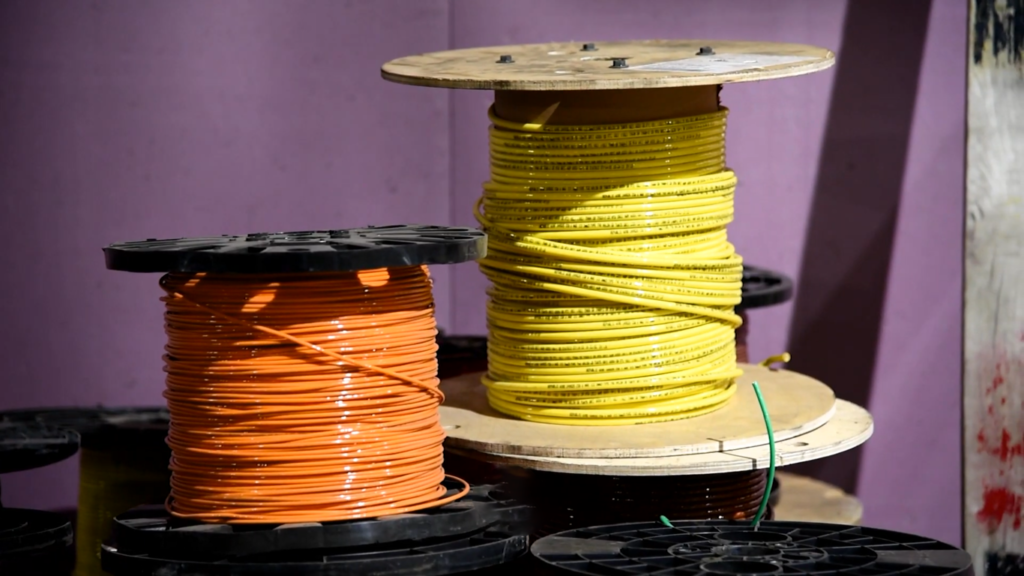
Problem solving skills
One of the most important skills that an electrician must have is problem solving. No matter what the job throws at you, being able to think on your feet and come up with a solution is key. This could be anything from figuring out why a circuit keeps tripping to finding an alternative route for wiring in a difficult space.
Communication skills
Of course, not all problems can be anticipated or solved without help. That’s why it’s also important to be able to communicate clearly, both in writing and verbally. When you’re stuck, being able to explain the problem (and potential solutions) to your boss or a coworker can go a long way towards finding a resolution.
In order to succeed as an electrician, you’ll need to have strong communication skills. After all, a big part of the job is being able to understand and explain complex electrical concepts to those who don’t work in the field. You’ll also need to be able to read and interpret blueprints, diagrams, and other engineering instructions.
There’s another layer to communication that’s important for electricians: being able to effectively communicate with customers and clients. Electricians often work directly with the public, so it’s important that they be able to answer questions and address concerns in a professional and courteous manner.
[1], [2], [3]Job Descriptions On the Electrician’s Career Path
Now that you know what skills are necessary to be an electrician, let’s explore some of the different positions available in the field. Generally, there are five main steps on the electrician’s career ladder.
- Electrician helper
- Apprenticeship
- Journeyman electrician
- Master electrician
- Electrical contractor
Let’s take a closer look at each of these positions to see what they entail.
Electrician Helper
The first step on the electrician’s career path is that of an electrician helper. As the name suggests, helpers provide assistance to journeyman and master electricians on the job site. This could involve anything from fetching tools to holding ladders to actually performing some of the electrical work under the supervision of a more experienced professional.
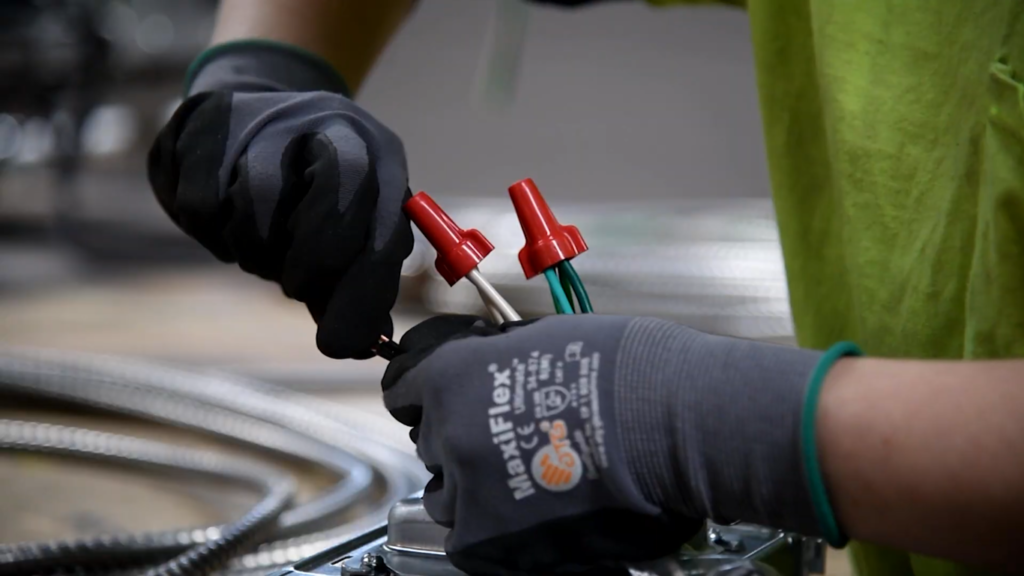
Most helpers start out as apprentices, working their way up the ladder as they gain more experience and knowledge. In order to become a helper, you usually don’t need any formal education or training beyond a high school diploma (or equivalent). However, some electrician helpers do have postsecondary degrees in electrical engineering or a related field.
It’s worth mentioning that electrician helpers aren’t an option in every state. In some states, electricians are required to have a certain amount of experience before they can work as helpers. So, if you’re interested in becoming an electrician helper, be sure to check the requirements in your state.
Apprenticeship
Once you have some experience as an electrician helper (or in a related field), the next step is to enter into an apprenticeship. Apprenticeships are hands-on training programs that last anywhere from two to five years, depending on your state’s requirements. During an apprenticeship, you’ll work under the supervision of a journeyman or master electrician, learning the trade while also earning a paycheck.
In most cases, you’ll need to apply for an apprenticeship through a local electrical union or contractor. The application process can be competitive, so it’s important to put your best foot forward. Upon completion of an apprenticeship, you will be able to take the journeyman exam to proceed down your career path further!
If you’re not sure how to get started, the National Electricians Association offers a helpful guide on applying for an electrician apprenticeship.
Trade schools are another option for those interested in becoming electricians. While attending trade school, you’ll take classes on topics like electrical theory, blueprint reading, and code requirements. You’ll also get some hands-on experience through internships or cooperative education programs.
Like apprenticeships, trade school can be a great way to learn the trade and get real-world experience. However, it’s important to keep in mind that trade schools can be expensive. In many cases, it’s cheaper (and just as effective) to enter into an apprenticeship.
If you decide to attend trade school, be sure to do your research before enrolling. There are a lot of scams out there, so you want to make sure you’re getting your money’s worth.
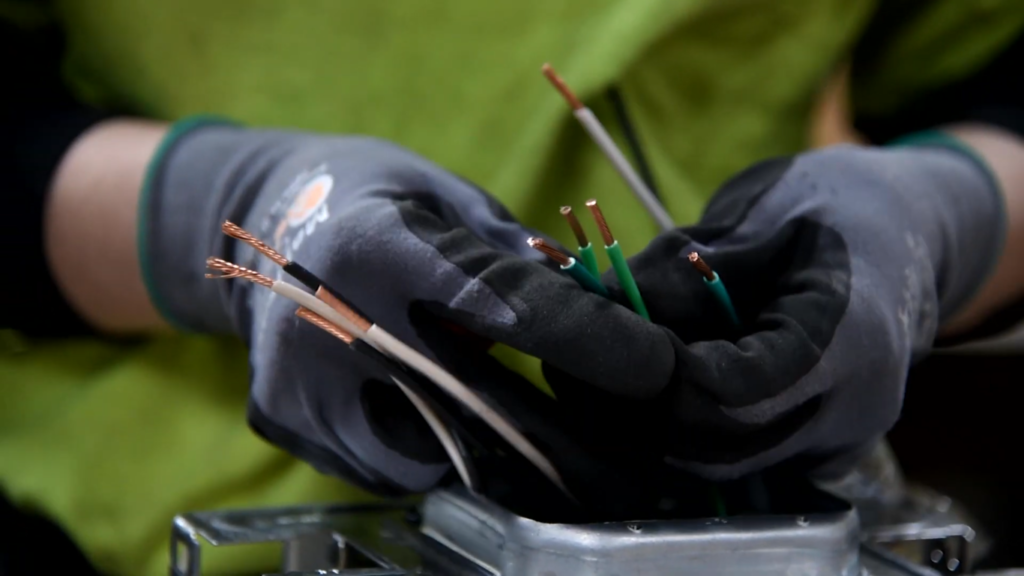
Journeyman Electrician
Once you’ve completed your electrician apprenticeship, you’ll be able to work as a journeyman electrician. Journeyman electricians are licensed professionals who are qualified to perform a wide range of electrical work. In most cases, journeymen are employed by electrical contractors and work on both residential and commercial projects.
Journeyman electricians typically have several years of experience under their belts. In addition to completing an apprenticeship, most journeymen have also passed an exam administered by their state’s licensing board. If you want to work as a journeyman electrician, you’ll need to meet the requirements in your state.
The test covers various topics related to electrical work, including safety, code requirements, and electrical theory. In order to pass the exam, electricians must have a thorough understanding of the National Electrical Code (NEC), which is the main guidebook for electrical work in the United States.
Luckily, there are many providers of Journeyman Electrician Exam prep courses. These courses will help you brush up on your NEC knowledge and prepare for the exam.
Master Electrician
The second highest level of certification for electricians is the master electrician license. Master electricians are licensed professionals who have the experience and knowledge to perform any type of electrical work. In most cases, master electricians are employed by electrical contractors and work on both residential and commercial projects.
In order to become a master electrician, you’ll need to have at least two years of experience working as a journeyman electrician. Similarly, you’ll also need to pass an exam administered by your state’s licensing board. The exam covers topics like safety, code requirements, and electrical theory. The Master Electrician exam is a journeyman electrician’s license issued by the state. It is required to work as an electrical contractor in most states.
Once you have completed your exam, you’ll officially obtain a license to become a master electrician. The requirements for these licenses vary by state, but most states will require continuing education credits to renew your license every few years. [4]
Specializations of Electricians
After you get your Journeyman or Master Electrician license, your career prospects will open up in a variety of directions. While the titles and responsibilities can vary from state to state, we outline some of the more common positions electricians can pursue.
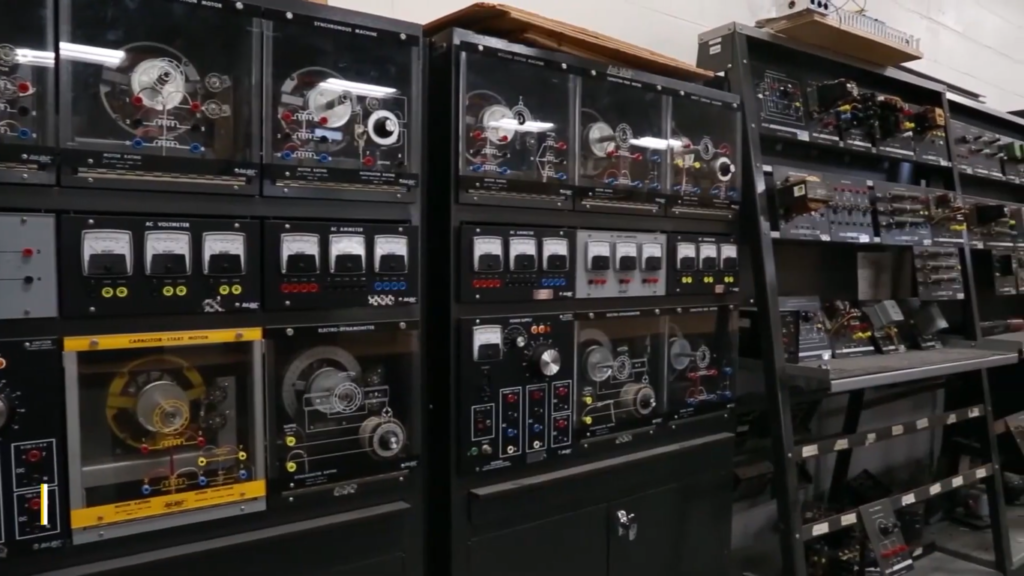
Estimator
As an estimator, your primary responsibility will be to generate cost estimates for electrical projects. This can involve everything from commercial construction projects to smaller home repair jobs. In order to create accurate estimates, you’ll need to be well-versed in the local building codes and have a strong understanding of the various materials and equipment needed to complete a project.
Project Manager
A step up from an estimator, as a project manager you’ll be responsible for managing all aspects of an electrical project. This includes creating schedules, ordering materials, supervising workers, and ensuring that the job is completed on time and within budget. Project managers typically have several years of experience working as electricians before moving into this role.
Project Engineer
The Project Engineer is responsible for the design of the electrical system and its coordination with the other systems in the building. They develop a project specification document that becomes the blueprint for the installation. The engineer also is responsible for troubleshooting any problems that may arise during construction. After completion, the engineer usually remains involved to ensure that the system performs as specified and to investigate any problems that may arise.
Supervisor
As a supervisor, you’ll be responsible for managing other electricians on construction projects. This will include assigning tasks, managing team meetings, ensuring safety standards are met, and more.
Sales Representative
Besides being a great electrician, you also need to be great with people to succeed in sales. As a sales representative, your responsibilities will include meeting with current and potential customers, giving presentations, writing proposals and contracts, and keeping up with the latest industry developments.
Most importantly, you’ll need to be able to sell yourself and your company’s services. If you’re not comfortable talking to people or don’t have the gift of gab, this probably isn’t the right career path for you.
Instructor
If you’re interested in teaching others the trade, becoming an instructor may be the route for you. Most instructors work for community colleges or technical schools, but some also work for private companies that offer electrician apprenticeships. In this role, you’ll be responsible for preparing lesson plans, delivering lectures and hands-on instruction, assessing student progress and maintaining industry-standard curriculum.
Business Owner
If you’ve obtained your master electrician license and want to sail free, you may consider working independently or starting your own electrical contracting business.
This is a great option for those who have the entrepreneurial spirit and are looking for more control over their career. As a business owner, you’ll be responsible for managing all aspects of your business, from marketing and sales to finance and accounting. You’ll also need to purchase liability insurance, which will protect you in case something goes wrong on a job site.
If you decide to start your own business, there are a few things you need to keep in mind. First, you’ll need to get the proper licenses and permits from your state and local government. You’ll also need to purchase insurance for your business. And finally, you’ll need to find reliable suppliers for the materials you’ll need to do your work.
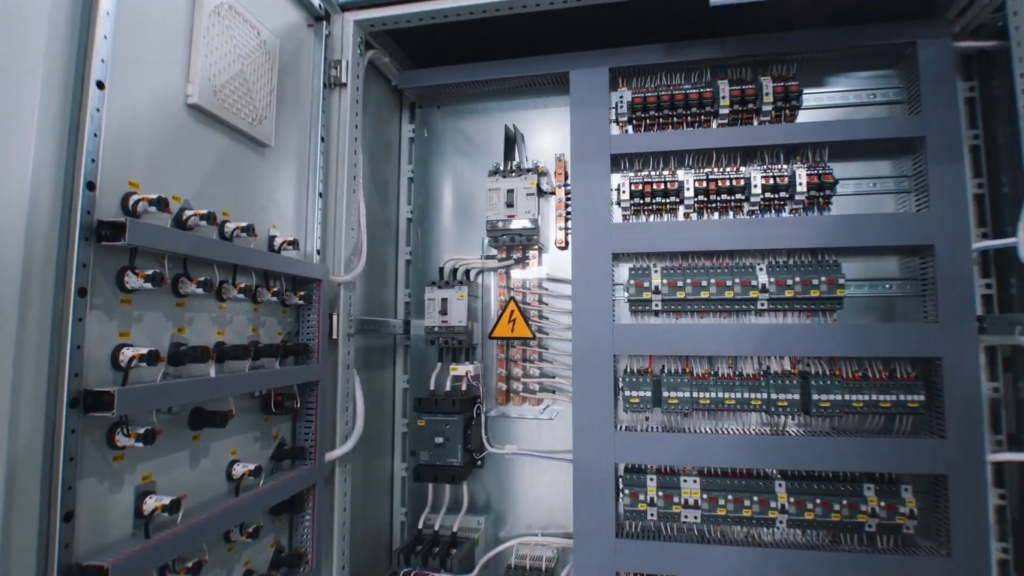
Running an electrical business can be a lot of work, but it can also be very rewarding. It’s a great way to be your own boss and control your own destiny. [4]
FAQ
Are electricians and electronic technicians the same?
No, electricians and electronic technicians are not the same. Electricians install, maintain, and repair electrical power, communications, lighting, and control systems in homes, businesses, and factories. Electronic technicians install, maintain, and repair electronic equipment such as radios, televisions, stereos, and computers.
Can electricians make 6 figures?
In theory, electricians can make six figures. In practice, it is extremely rare for an electrician to do so. The vast majority of electricians make a comfortable living, but very few become truly wealthy.
How can I change my electrical career?
The best way to change your electrical career is by starting your own business. This gives you the most flexibility and allows you to choose your own hours, work with different types of clients, and set your own rates. Additionally, it allows you to be in control of your own career path and future. However, starting your own business can be a risky proposition, so make sure you do your research and understand the potential risks involved before making the jump.
Or, you can obtain a certification or degree in a related field such as electrical engineering. This will allow you to work in a different capacity within the electrical industry, and may even lead to higher paying positions. However, it is important to note that changing your career path in this way will likely require going back to school and taking on something as costly as education.
What is the career path for an electrical engineer?
The career path for an electrical engineer generally starts with obtaining a bachelor’s degree in electrical engineering. After graduation, many electrical engineers go on to work in the field of power generation, transmission, and distribution. Other electrical engineers may find positions in the automotive or aerospace industries, or they may choose to pursue careers in research and development.
Useful Video: Finding Your Pathway: Electrician
Conclusion
Becoming an electrician is a great way to make a good living while doing work that is enjoyable and challenging. There are many different career paths available to electricians, so it is important to do some research and figure out which one will be the best fit for you. With the right training and experience, you can have a successful career as an electrician.
You most likely will start your journey by working as an electrician helper. This position involves assisting journeyman electricians with various tasks, such as running cable, making connections and testing systems. Next, go for an apprenticeship to complete your training. Many electricians choose to become certified journeyman electricians before moving on to other career paths.
Once you gather some experience, take a Journeyman Electrician Exam to earn your certification. After that, you can apply for a master electrician license. With a master electrician license, you can work as a general contractor or start your own electrical business.
There are many other career paths available to electricians, such as working in the automotive industry, becoming an electrical inspector or teaching at a trade school. No matter what path you choose, with hard work and dedication, you can have a successful career as an electrician. Thanks for reading!
References
- https://www.shrm.org/resourcesandtools/tools-and-samples/job-descriptions/pages/electrician.aspx
- https://www.betterteam.com/electrician-job-description
- https://intercoast.edu/blog/become-an-electrician/
- https://asktheelectricalguy.com/electrician-career-paths/











Leave a Reply